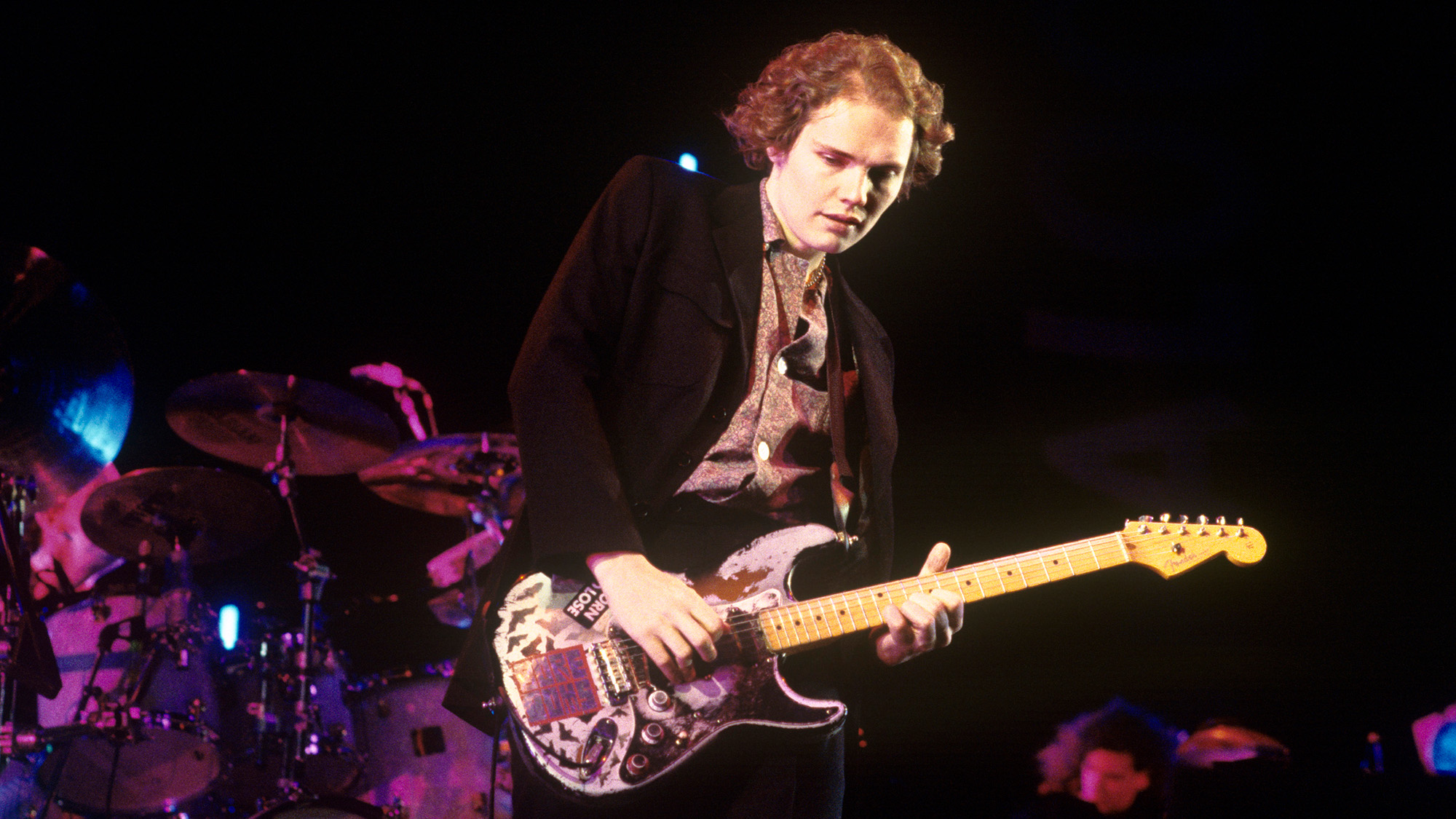Mike Campbell: "The Dirty Knobs are all about having fun. At least 95% of the solos were recorded live on the floor"
The longtime Tom Petty and the Heartbreakers co-captain on the debut album by his very patient side project – and the future of Fleetwood Mac
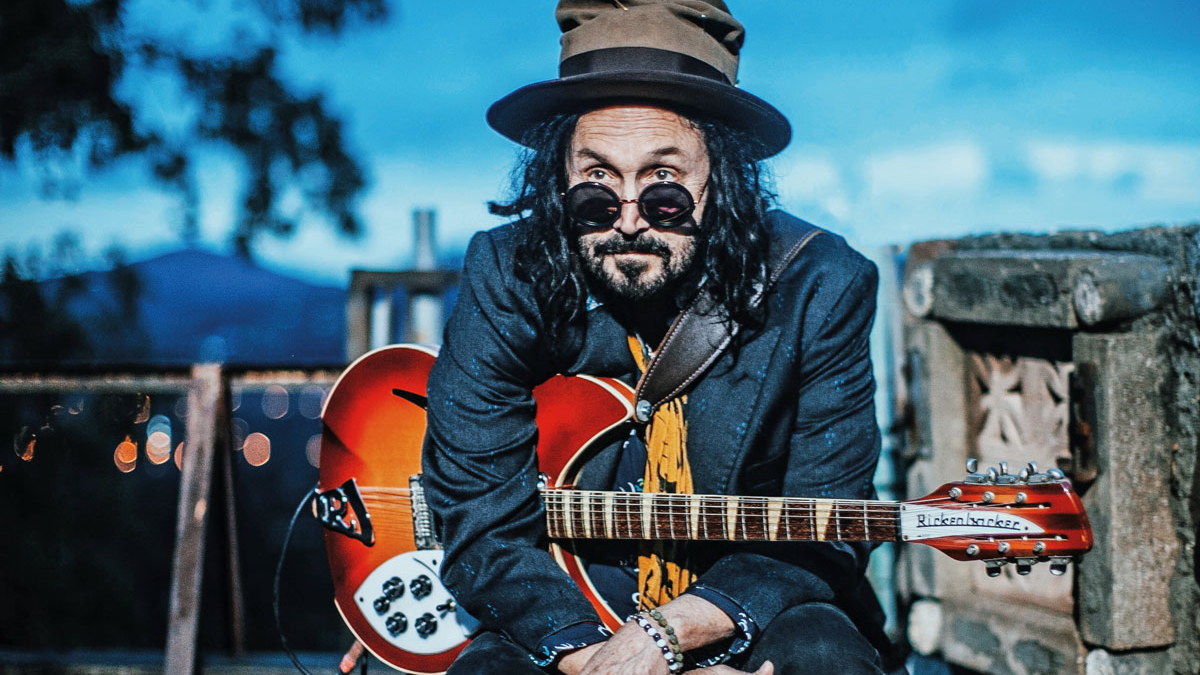
Sure, Wreckless Abandon is the debut album from the Dirty Knobs, but the band, headed by Tom Petty and the Heartbreakers and Fleetwood Mac guitar great Mike Campbell, is hardly a new concern.
Rather, they’ve existed for going on 15 years now; it just took a while for the four-piece - Campbell on guitar and vocals, Jason Sinay on guitar, Lance Morrison on bass and Matt Laug on drums - to find the time to cut a record.
Explains Campbell, "The Knobs started out as a project to do between Heartbreakers tours. I met the guys very organically, and I didn’t really intend to audition a band, per se. But I had some songs and we just hit it off. I thought the music was really good and deserved to be heard, but out of respect to Tom I never felt comfortable doing it while the Heartbreakers were active. I was loyal to my partner.
"But in the back of my mind I always thought, Someday, if the Heartbreakers wind down, I’ll focus on the Dirty Knobs."
The Heartbreakers, of course, did wind down, and in the most unexpected and tragic of ways, when Petty passed away October 2, 2017, at age 66, after accidentally overdosing on the prescription drugs he was taking to treat a fractured hip, emphysema and knee problems, among other health issues.
When Guitar World spoke to Campbell roughly a year later [for the January 2019 issue], the guitarist was still reeling from the loss of his longest and closest musical collaborator. But he also reported that he had reconvened with his friends in the Knobs and had begun laying down tracks for an album with producer George Drakoulias.
Soon enough, however, Campbell had to put the brakes on the Knobs once again. In early 2018, he received a call from drummer Mick Fleetwood, inquiring whether he would be interested in replacing Lindsey Buckingham in Fleetwood Mac.
All the latest guitar news, interviews, lessons, reviews, deals and more, direct to your inbox!
Campbell accepted the offer, becoming a full-fledged member of the Mac and heading out on a tour that ended up circling the globe and lasting more than a year. As for the Knobs?
"God bless them - they were very patient," Campbell says with a laugh. That patience, it appears, is now paying off. And not just for the Knobs themselves, but also for music fans who have missed the sort of hooky, rootsy, classic-rock-drenched tuneage that Campbell and the Heartbreakers cooked up with seeming ease for more than 40 years.
That sound is displayed in its full glory, with some twists - and lots and lots of hot guitar riffs and solos - on Wreckless Abandon.
We’ve known each other for 15 years, but we never had an agenda to be a commercial project until now. And that’s the beauty of it - we do it for the joy of the music
Indeed, Petty fans will feel right at home inside the bright, jangly melodies of the title track, the hypnotic, John Lee Hooker-style groove of Don’t Knock the Boogie and the straight-up Southern rock of Sugar. (There’s also Campbell’s disarmingly Petty-like vocal drawl, which doesn’t so much ape his former band leader as it does reflect their shared northern-Florida origins.)
But there’s also plenty of uniquely Knobs-crafted sounds - the aggressive hard-rock riffing of Loaded Gun and Southern Boy; the dark, heavy blues of I Still Love You and Don’t Wait; the country-rocking, Chris Stapleton-guesting Pistol Packin’ Mama; the smooth and slinky (and drolly cutting) Fuck That Guy - that demonstrate Campbell’s impressive facility as a singer, songwriter, guitarist and bandleader.
"I’m just following the muse wherever it wants to take me," he says, somewhat humbly. In the case of the Dirty Knobs, Campbell’s muse appears to be pointing him, first and foremost, toward the pursuit of having a good time.
"That’s what the Knobs are all about," Campbell says. "This band has always been just for the love of playing. We’ve known each other for 15 years, but we never had an agenda to be a commercial project until now. And that’s the beauty of it - we do it for the joy of the music."
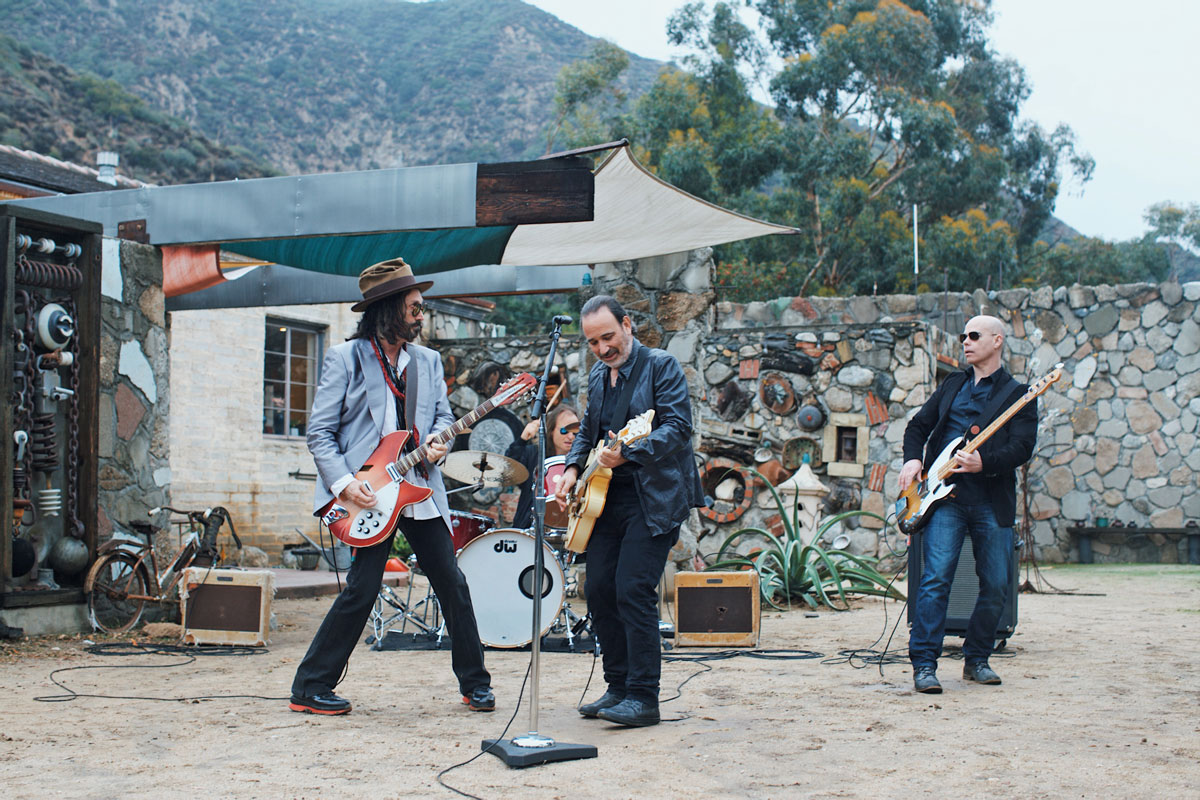
That "joy of the music" you talk about actually comes across on Wreckless Abandon. In addition to the album being a pretty entertaining listen, from a guitar perspective you get the feeling these songs are just really fun to play.
"Well, you used the key word - fun. We’re all about having fun, and the songs were written to be fun on the guitar. I mean, this is basically a guitar band. There’s a few keyboard overdubs on the record, but mostly it’s just the four of us playing live in the studio. And at least 95 percent of the solos are live on the floor during the take.
"And so, yeah, it’s a guitar band and there’s a lot of stuff that’s fun to play - great guitar riffs and spaces for the guitar to play little solos here and there. I can’t wait to play the songs live as a set. It’s going to be a gas."
Obviously Tom Petty and the Heartbreakers was a guitar band, too. But in the case of the Knobs, do you feel like you’re pulling from different guitar influences, even slightly?
"That’s a good question. I have a lot of inspirations, most of them from the Sixties, when I was growing up. It was such a great time for a guitar player to come of age, with the Beatles, the Stones, the Beach Boys, the Animals, the Kinks, the Zombies - all these great bands that had really inspiring guitar parts.
As a musician, you grow up and you listen to stuff and it inspires you and it stays with you
"Those are the things that are in me, even going farther back, to Chuck Berry and Bo Diddley. I don’t consciously pull from them, but they tend to come out in different ways in everything I do."
Some of these songs seem to be influenced by harder riff-rock as well. Loaded Gun, for example, or Southern Boy - there are sections in that number that remind me of AC/DC, both in the overall feel and also in the actual guitar tones.
"That’s a great compliment. Yeah. I love AC/ DC and I love Led Zeppelin and I love guitar riffs. And Loaded Gun, there’s even a little bit of 'punk exuberance,' I’d like to say, in that. So it’s not all '60s music; it’s everything I’ve soaked up in my life. As a musician, you grow up and you listen to stuff and it inspires you and it stays with you. Then when you start playing, you find those kinds of nuances coming out - whether you want them to or not"
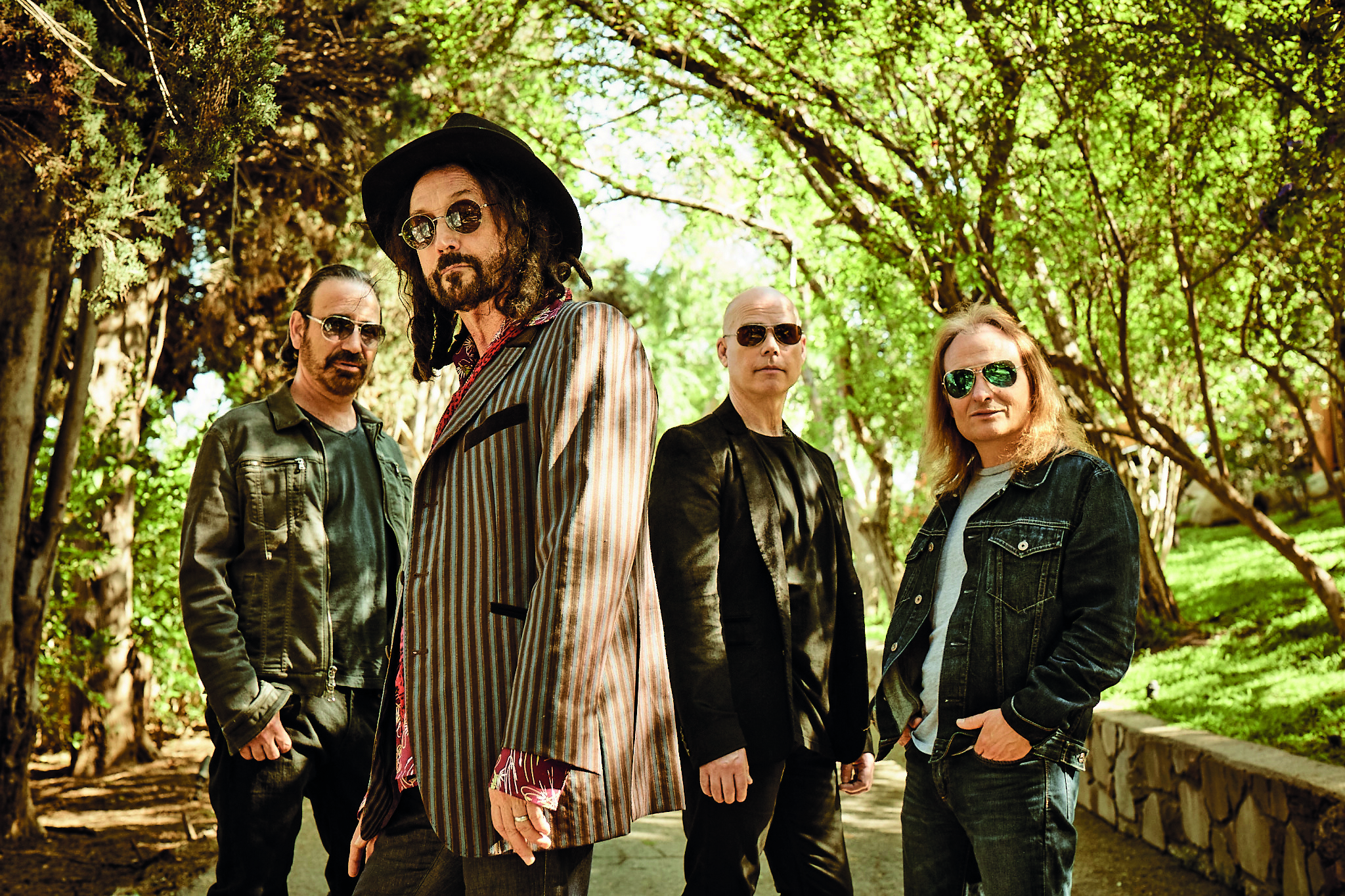
When it comes to the solos on the record, you give yourself more space to stretch out than you usually had in Heartbreakers songs. Did you approach the playing any differently?
"Well, the Heartbreakers had a few songs, like Running Down a Dream, where it was, 'Okay, we have two minutes here at the end - do something.' The Knobs have a lot of songs like that. But I don’t approach it any differently. I tend to not work stuff out in advance.
"I’ll have a rough idea of how it should feel, and I think about the lyrics and what the singer is feeling, what they’re trying to say. And I try to get the guitar inside that voice.
"But when it comes to the solos, I mean, I know what key it’s in, and I kind of know how I might start. But I don’t want to plan it out — I want to see what happens in the moment. And I’ve found, for me, anyway, that’s when the most interesting stuff happens."
I Still Love You is a truly great lead guitar showcase.
"That was a very emotional lyric and very personal to me. So I didn’t think about what notes I was going to play - I just thought about a feeling I wanted to convey. And what I wanted was to convey a tortured, redemption kind of feeling - 'I’ve been through hell, but it’s going to be okay.' That kind of thing.
"I wanted to get that out through the guitar somehow. It’s intense in that particular song, but it’s coming from a place of real feeling."
What do the Dirty Knobs offer you as a player that you consider unique, and separate from what you would get from the Heartbreakers or Fleetwood Mac?
"Well, a couple of things. First of all, it’s my songs and so I have a spiritual investment in the music. And the Dirty Knobs have always been a band that, to borrow a phrase, plays with reckless abandon. We don’t follow a script. Whereas the Heartbreakers, the shows left very little room for improvisation. It wasn’t that type of a band.
"But with the Knobs, we have the freedom where we don’t have to play to a script. We can go out and extend a solo or extend an ending or do whatever we feel like. And the guys are so good. If I decide I want to go off in a certain direction, they’ll follow me.
"So I get to lead the band and take it where I want it to go, as opposed to being the co-captain in the Heartbreakers, which I loved doing, too. But it’s a different hat."
What are the main guitars that appear on the new record?
"On this record, and actually the last couple of Heartbreakers records, I used my ’59 Les Paul quite a bit. It just seems to fit a lot of these Dirty Knobs songs. And I used a Rickenbacker 12-string on Wreckless Abandon, and my old [Fender] Broadcaster on a couple of the sort of 'cleaner' guitar songs, like Aw Honey.
I would guess probably 80 percent of the record is the Les Paul
"But I would guess probably 80 percent of the record is the Les Paul. And for acoustics I have a Martin D-45, a Gibson J-45… they’re kind of old, from the '50s and '60s. But I always record with those because they just sound so good."
How about amps?
"I had the setup I always use onstage and in the studio, which is Fender Princeton and a Fender Tweed Deluxe together. I came across that sound when I first started playing with the Knobs. We were playing clubs and using Bassmans and AC30s and it was just so loud. I can barely sing anyway, but I couldn’t sing over the noise. And actually that gave me more respect for Tom for putting up with all that volume over those years.
"So I said, 'Well, let’s use smaller amps.' And around the same time I saw Neil Young play a big place with a little amp and I thought that might work for us. So I got the little Deluxe and the Princeton and I had the other guitar player, Jason, get the same rig, too. So the sound is real good without being loud onstage.
"You can actually talk over it if you have to. But you put a mic on it and it really translates well to the PA. I’ve been using that setup for the last 10 years or more."
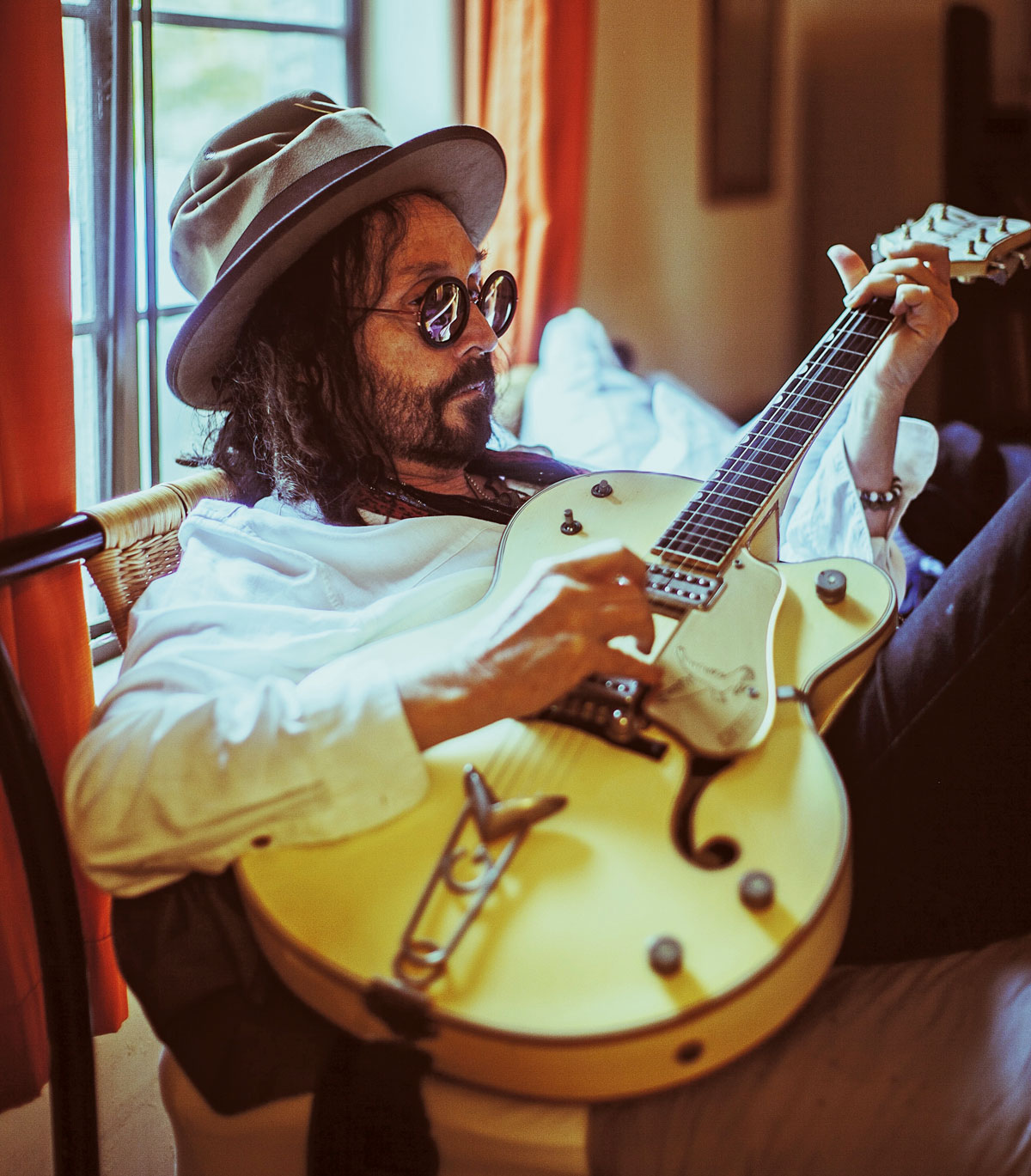
The last time we spoke, you mentioned that one of the things that appealed to you about Fleetwood Mac was that you enjoyed playing the big rooms, and you weren’t sure that would happen again after the Heartbreakers. But now you’re getting to spend some time in smaller rooms as well. What do you like about that setup?
"That’s a very good question. I started out in little rooms, when we started the Heartbreakers - well, it was Mudcrutch back in the day - in Florida. We played smaller places and that’s where I honed my craft. I love that kind of intimacy.
"It’s a whole different thing than playing in an arena. Because the crowd is right in front of you - you can see their eyes, and everybody hears pretty much the same thing because you’re in a small, confined space and everybody’s surrounded by the same walls. You’re all part of the experience in a more intimate way. I feel really comfortable in that setting.
"Now, the arenas are a different thing. When you play the big rooms it’s almost like the less you play the better it sounds, because there’s so much air and echo and space around the music. If you play too busy, it can sometimes get lost. But in the small rooms you can explore the intimacy of the sound and you can play more notes because they’re not lost in the echo. You can go into different kinds of zones.
"So I like both ways, but I’m really looking forward to starting small again and playing, you know, 400-, 500-, 1,000-seat places. I love playing those gigs. I love being close to the people."
You’ve played a few Heartbreakers songs at previous Knobs gigs. Now that you have an album of original material out, will that still be the case?
Playing Heartbreakers songs honors my friend, you know? I think I owe it to him to acknowledge him every night
"I’ve put a lot of thought into that. I mean, we are promoting a new record, so mostly I want to play these songs. But I do feel that people that come to see me are going to know who I am and what I’ve done in the past, and they’re going to probably appreciate hearing a song or two from that catalog.
"And we love playing those songs, the Knobs and I - we’ve learned about five or six different Heartbreakers songs. And some of them are deep tracks, not just the hits.
"So I’m thinking in the smaller clubs I might put one song in the set from the old days, and maybe for the encore I might do a couple more, just so people can take that home with them. That way, not only will they see a new band and hear new songs, but they also get a little taste of where I come from, where we come from. And it honors my friend, you know? I think I owe it to him to acknowledge him every night.
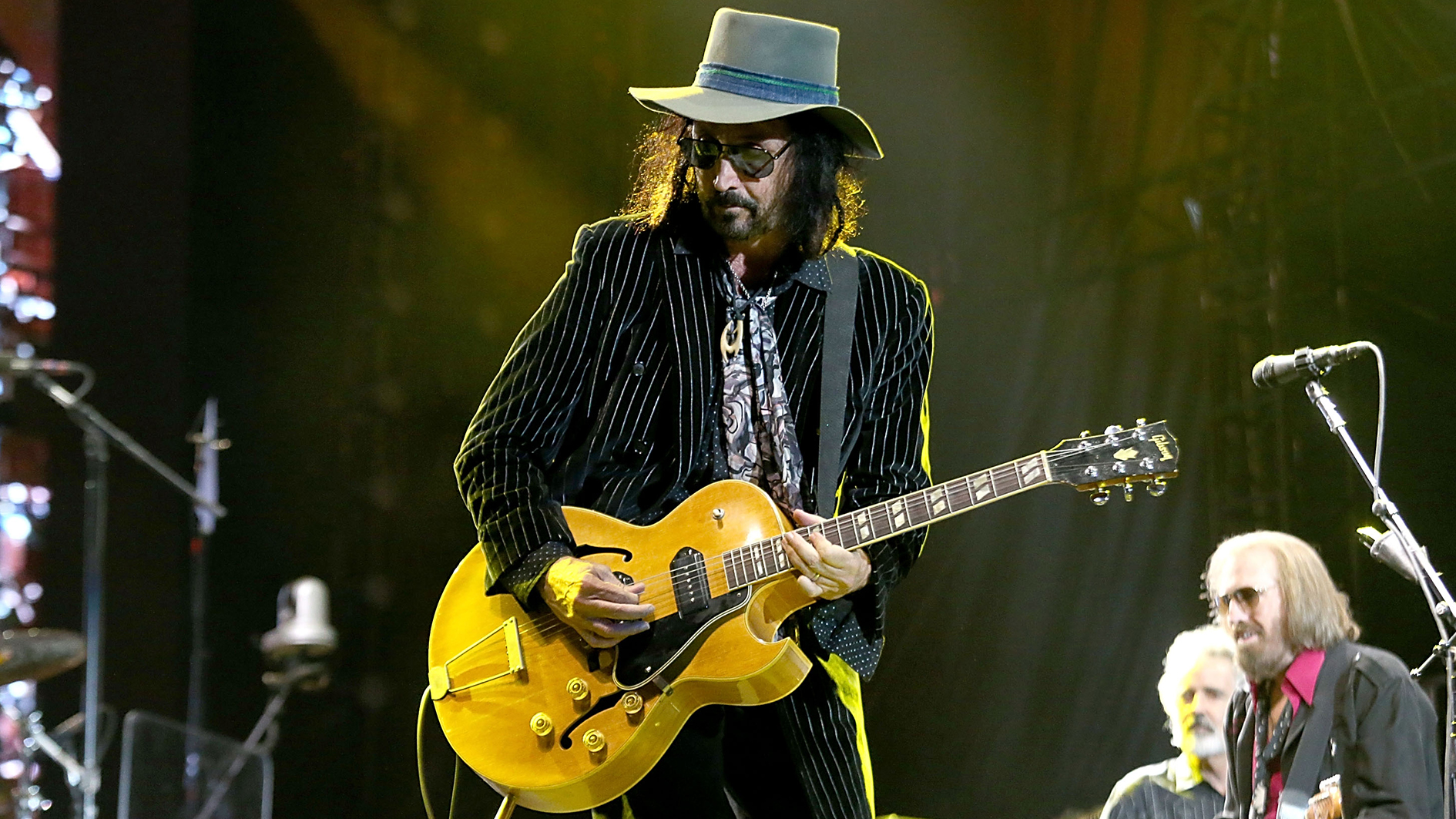
Those songs are a part of your life, but they’re also a part of so many people’s lives.
"Yeah. I don’t take that lightly. I feel a lot of gratitude that I was able to be a part of that. And those songs will live way beyond me. People tell me all the time how much the songs mean to them. I’m very blessed to have that."
As far as actually performing those songs, on the Fleetwood Mac tour you were doing a classic as huge as Free Fallin’ at every show, and you’ve told us before about that being a bit of a difficult moment for you. Now that time has passed, has the intensity of that emotion become softened at all?
"A little. I mean, I’m still deep in my grief, and when I do those songs I think about Tom. I feel his presence and sometimes it’s a bit emotional, but it’s also healing. It’s a way for me to work through my grief. But I think if you show a little emotion and it’s real, people understand. And they’re going through it too, you know? They’re grieving too, and it’s a way for us to maybe heal a little bit together."
Did you have a favorite Fleetwood Mac song to perform on that tour?
"I liked all the songs. I like Lindsey Buckingham, and I respect him greatly. And it was a challenge for me, coming from a band where I’m used to playing my own stuff, to step into their band and try to honor the music the way it should be.
"Because it required learning certain guitar parts and expressing them in the right way. And Lindsey’s guitar parts are so iconic - without those parts the songs don’t sound the same. So I took it upon myself to try to really learn them - get the nuances right, get the tones right and play them the way they should be played.
We did have a meeting at the end of the tour and everybody agreed that they probably don’t want to do any more long tours like that. I mean, it was really grueling
"In a few places here and there I could put my own musicality into it, but mostly I was just trying to honor their records and help the band sound as close to those records as I could."
Do you think that there’s a possibility that you guys will record new music together?
"I don’t know. Maybe. When I first got the call I assumed we would do some recording, because they asked me to join the band. They said, 'This is not an audition - we want you to join.' I thought about it for about a day and I decided I would do it.
"And so I told Mick, 'Well, it starts with the songs.' I was thinking we’d make a record, maybe, and then go out and play. But he said, “Oh no, we’ve got these commitments to do this tour…” Which ended up being almost a year and a half. [Laughs] So I don’t know what their plans are in terms of recording. They may not want to record another album. I’m not sure.
"But we did have a meeting at the end of the tour and everybody agreed that they probably don’t want to do any more long tours like that. I mean, it was really grueling. It was great fun and I’m glad I did it, but it was very tiring for all of us.
"And so we decided, 'Well, let’s take a year off and let everybody do things that they want to do for a while. And then in the not-too-distant future, if a handful of gigs come up that sound good, maybe we’ll do that.'"
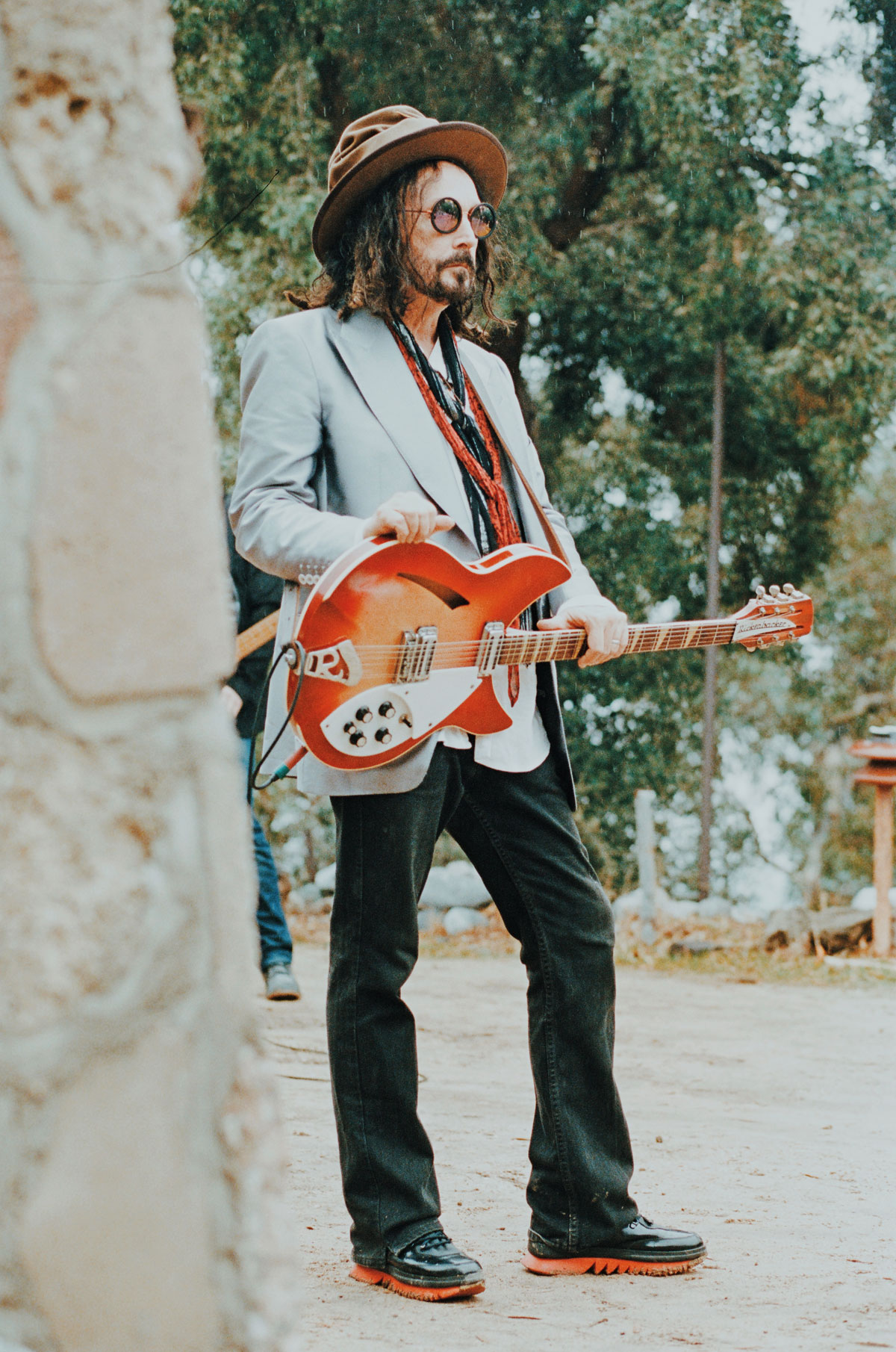
Well, you clearly like to get out there and play.
"Oh, yeah. I love it. You have to keep playing, you know? That’s why I did the Knobs between Heartbreakers tours in the first place - because I couldn’t just sit around. I need the experience of playing live. That’s part of my nature.
"So this is going to be very humbling, in a good way, starting in the smaller places. And hopefully this record will do well enough to enable us to do another one. My idea is to slowly build it up to something where we can play theaters at some point. That would be a huge success for me, you know?"
It’s amazing to think that, in a career where you’ve had so many incredible experiences, you’re still getting to have new and fresh ones more than four decades in.
"Well, like I said, the main thing is I want to have fun - always. I want to play music, and I figure if I’m doing that, and I’m having fun doing that, then I’m succeeding."
Rich is the co-author of the best-selling Nöthin' But a Good Time: The Uncensored History of the '80s Hard Rock Explosion. He is also a recording and performing musician, and a former editor of Guitar World magazine and executive editor of Guitar Aficionado magazine. He has authored several additional books, among them Kurt Cobain: Montage of Heck, the companion to the documentary of the same name.

